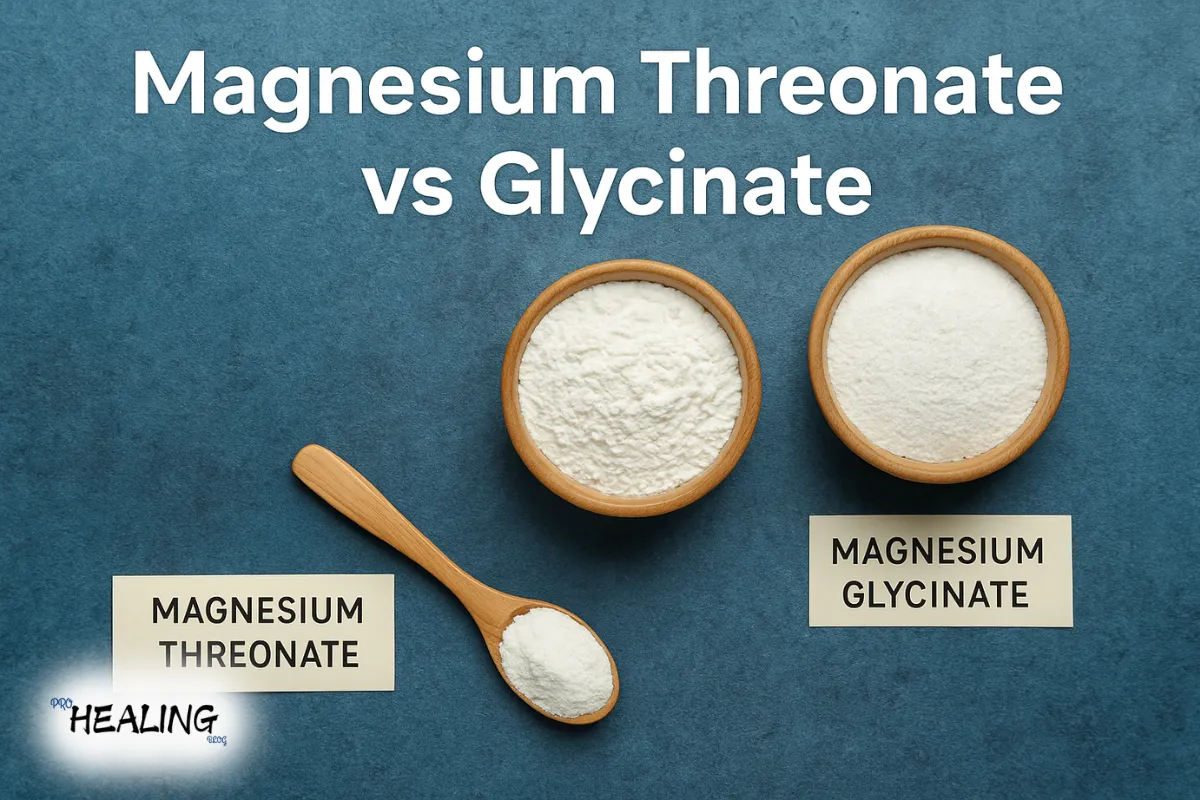Understanding the Basics of Magnesium Threonate vs Glycinate
Magnesium is a mineral that assists our body in numerous significant ways. But it‘s not one size fits all. Two unique forms go by the names magnesium threonate and magnesium glycinate. Both assist our bodies in different ways, but differently so. This confuses individuals into asking themselves which one they should utilize.
Magnesium threonate is produced when magnesium is combined with a substance known as threonic acid. It is a product that researchers developed in order for magnesium to more readily enter the brain. As the brain requires magnesium to facilitate nerves and memory function properly, threonate is generally chosen for brain support. Magnesium glycinate, however, is produced when magnesium is combined with glycine. Glycine is an amino acid, which is what the body utilizes to create proteins. This kind of magnesium calms the body and promotes sleep.
When both magnesium forms are compared side by side, it‘s simple to realize that they‘re different. Individuals must know what each form does if they plan to use magnesium and get better mentally or physically. Therefore, knowing about magnesium threonate vs glycinate allows individuals to make intelligent decisions for their bodies.
When you line up magnesium threonate vs glycinate, the differences start to show. Threonate mostly helps your brain feel more awake and alert. Glycinate helps your body settle down and feel calm. That’s why it’s important for people to understand what each type does before picking one to use.
By learning the facts about magnesium threonate vs glycinate, smarter choices can be made to support a healthier, more balanced life.
Tech Behind Magnesium Threonate vs Glycinate Efficiency
For magnesium threonate, scientists have developed a method of binding magnesium to a compound known as threonic acid. Threonic acid is one component of Vitamin C that facilitates the entry of magnesium through the protective wall of the brain. This protective wall, or the blood-brain barrier, is like a gate that opens only to allow specific substances into the brain. The majority of forms of magnesium cannot pass through it freely. But threonate can. Due to this discovery, magnesium threonate has gained popularity among those who wish to support memory, learning, and brain function.
At the same time, magnesium glycinate is formed by bonding magnesium to glycine, which is a relaxing amino acid. The union allows the magnesium to digest easily into the body and stomach without being too problematic like loose stools. The relaxing component of glycine also acts in the brain but in a broader sense. It relaxes the nerves, and that is why individuals become more relaxed and even sleep better after ingesting glycinate.
Technologies employed to render these forms pure and bioavailable are significant. They are usually synthesized in laboratories with sanitized equipment and meticulously tested. Companies even go as far as employing nano-technology to reduce the particles’ size. This facilitates it even more for magnesium to penetrate the cells.
Magnesium Threonate vs Glycinate for Brain Support
The brain is a hectic environment. It sends signals, remembers, and regulates emotions. Magnesium is responsible for all of this. Of all forms of magnesium, threonate is the one that‘s best recognized for assisting the brain.
Magnesium threonate is effective because it directly enters the brain. It increases brain levels of magnesium more than any other form. The additional magnesium makes connections in the brain stronger. These are the ways brain cells communicate with one another. When they communicate more effectively, thinking is clearer. That is why others use magnesium threonate to enhance memory or concentration.
On the other hand, magnesium glycinate assists the brain in a more relaxed manner. The amino acid it‘s bound to, glycine, is relaxing. It doesn‘t penetrate deep into the brain like threonate, but it does calm you down and feel less stressed. Individuals who experience anxiety or can’t relax their thoughts tend to opt for glycinate.
Magnesium Threonate vs Glycinate for Sleep and Relaxation
Sleep is one of the greatest things for health. Without good rest, it’s difficult to think, learn, or remain happy. Magnesium aids sleep because it relaxes the brain and body. But various forms of magnesium aid in various ways.
Magnesium glycinate is usually preferred by individuals who struggle to sleep. That is due to the fact that glycine, the amino acid component, commands the brain to relax. It also cools down the body‘s temperature, which is among the body‘s cues to sleep. Due to this, individuals who use glycinate usually report falling asleep quicker and sleeping longer.
Magnesium threonate is different. It won’t make you tired the moment you take it. But it promotes brain health when you sleep. That‘s because it allows your brain to remove waste and heal itself overnight. Some individuals who use threonate report waking up feeling sharper and more refreshed even if they don‘t sleep more.
Magnesium threonate versus glycinate is a significant distinction when it comes to sleep and rest. They are both beneficial, but they accomplish this in completely different manners. Choosing the one that is best suited requires knowing what type of sleep assistance an individual requires.
Magnesium Threonate vs Glycinate Absorption in the Body
How the body absorbs magnesium is very critical. If it cannot be absorbed well, then it cannot function well. That is where magnesium threonate and glycinate step in. Both of these are designed to be stomach friendly and simple to be absorbed.
Magnesium glycinate is very easily absorbed. It doesn‘t typically lead to loose stools like other forms can. That‘s because the glycine assists in bringing the magnesium into the body in a gentle and stable manner. Individuals who use glycinate tend to have fewer side effects and more calming effects because it‘s absorbed slowly but certainly.
Magnesium threonate is also absorbed well, but for a unique reason. Its giant advantage is that it penetrates into the brain. It might not be the best at increasing magnesium in the entire body, but it‘s the best for increasing levels within the brain. That makes it ideal for those who need brain assistance, but perhaps not the ideal choice if one needs magnesium for bones or muscles.
Although both are excellent at entering the system, they have different routes and perform different functions inside. That‘s why it is so critical to decide between them.
FAQs
How is magnesium threonate different from glycinate?
Magnesium threonate benefits primarily the brain whereas glycinate makes the entire body relax and sleep.
Is magnesium threonate superior for memory?
Yes, magnesium threonate is the best for memory since it goes more directly into the brain compared to other types.
Does magnesium glycinate reduce stress?
Yes, it calms the body and mind and is excellent for stress and sleep relief.
Can I use both magnesium threonate and glycinate?
Yes, some take both to support the entire body and brain, but consult a doctor first.
Does magnesium glycinate lead to diarrhea?
No, it generally doesn‘t because it‘s not as harsh on the stomach as other forms.
What magnesium is best for sleep?
Magnesium glycinate is often ideal for sleep due to its soothing effect.
Conclusion
Magnesium threonate vs glycinate is a decision that is based on what one requires. Whether improved memory or tranquil sleep, both have their advantages. Threonate is excellent for improving the brain, whereas glycinate is ideal for tranquility and rest. Knowing how they function guides the selection of the best one for sound mind and body.






